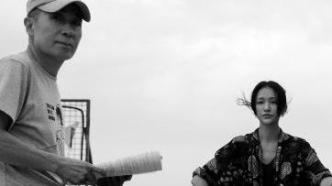
A young girl was stabbed 17 times, and her grief-stricken father chased the murderer across the country, only to discover that the murder weapon used to stab his daughter was pointed directly at him. The movie "Crossing the Angry Sea", which will be released on November 25, is the third part of director Cao Baoping's "Heart-Searing Series". It uses the most extreme story to delve into the universal problems caused by native families. Under extreme circumstances, A large-scale trial of complex human nature.
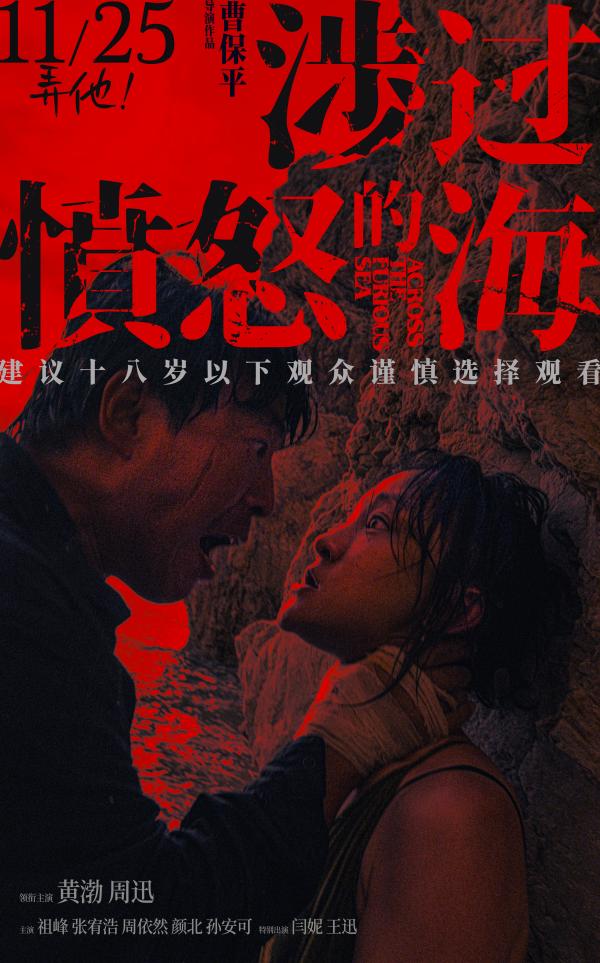
"Wading the Angry Sea" poster
On November 21, the film came to Shanghai for a road show. In the Dolby Thousand-person Hall of Shanghai Cinemas SHO, Cao Baoping and the leading actors Huang Bo and Zhou Xun had an hour-and-a-half in-depth exchange on the film with friends in the industry and the audience.
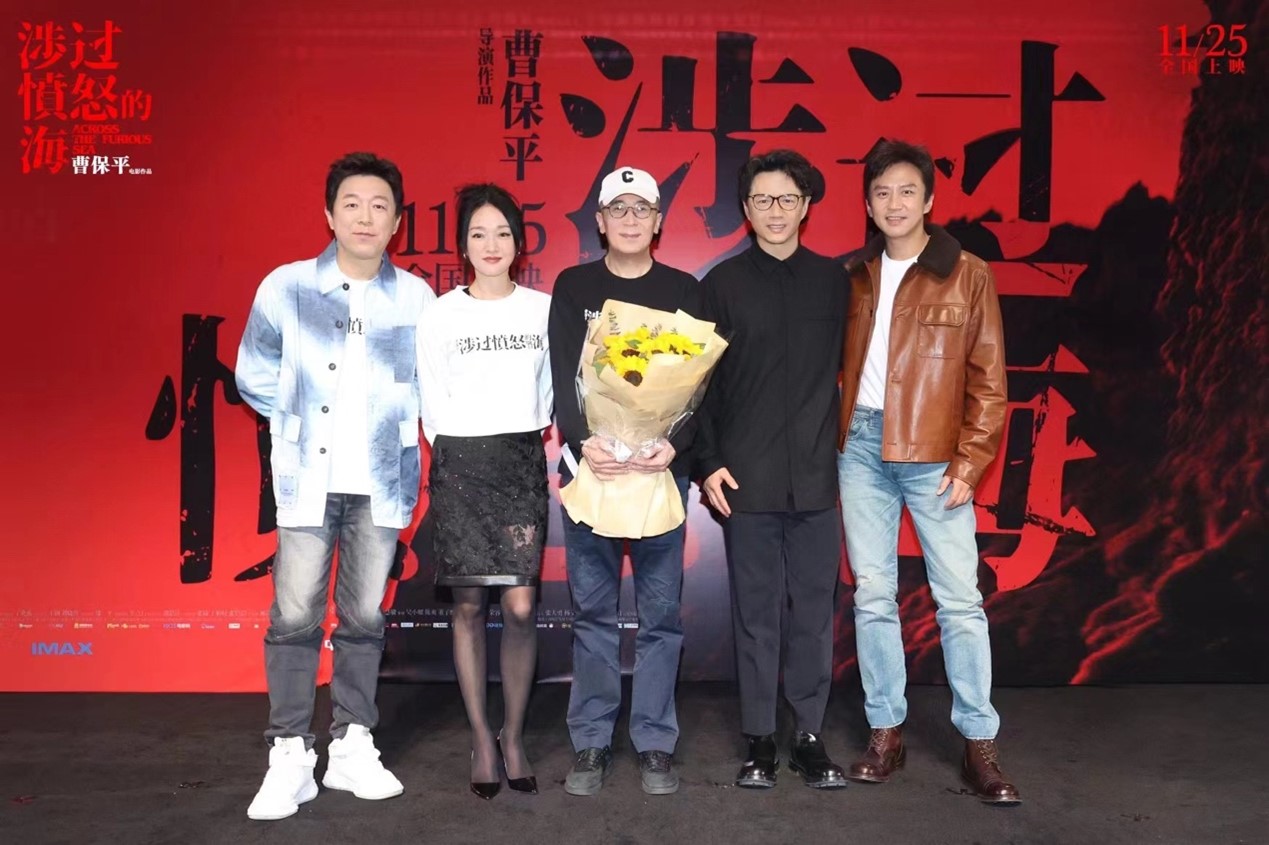
"Wading the Angry Sea" Shanghai road show scene
Pushing actors to their limits brings pain and joy
On the day of the road show of "Crossing the Angry Sea", Deng Chao and Duan Yihong, the leading actors of "Scorched Heart" who are also participants in the "Scorching Heart Series", also came to watch the movie and recalled on stage with the main actors and actresses who were criticized by director Cao Baoping’s “cruel” past.
Duan Yihong lamented that the actors in "Crossing the Angry Sea" fully performed the screenwriter's subtext and created solid characters. "This character can only be understood, and the actors in the entire film have done it. I am so excited! The level of Chinese actors has reached this level! Is this a Chinese color widescreen movie?"
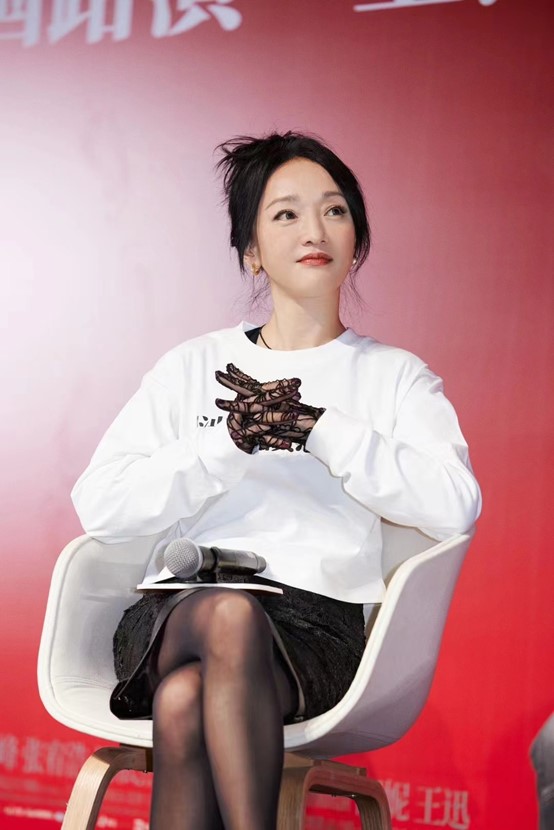
Zhou Xun
Deng Chao, who once worked with Zhou Xun on Cao Baoping's film "Li Mi's Conjecture", still remembers that his observation of Zhou Xun at that time was "experiencing Li Mi's life" in the movie. And this time, Zhou Xun's first line in the film made Deng Chao sigh, "It's so comfortable." "She cut right to this, and put a lot of lengthy things directly into the characters at that moment." They are experiencing everything. , where actors experience real life. "
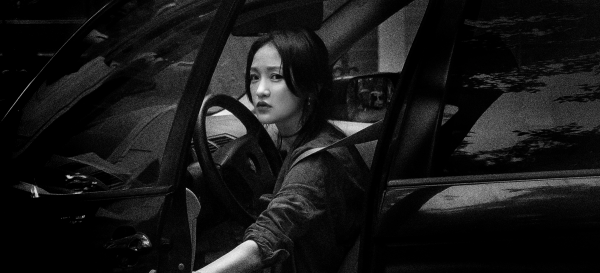
Zhou Xun as Jing Lan
Zhou Xun, who has had cooperation experience ten years ago, is more adaptable to Cao Baoping's rhythm than Huang Bo. She said that as an actor, she has always been looking forward to receiving Cao Baoping's script. "A good text will give actors a very wide space and level." . When you see this story starting from the beginning, the accumulated feelings of each line will give you a profound response at the end of the film."
Huang Bo revealed that after Zhou Xun finished filming a scene at the beach, his knees were smashed and his body was bruised and bruised. "The director will really push you to the limit, whether it's the energy of your body or the energy in your heart." , this thing is just like when you run, the kind of joy you feel as an actor after you run past the limit is rare."
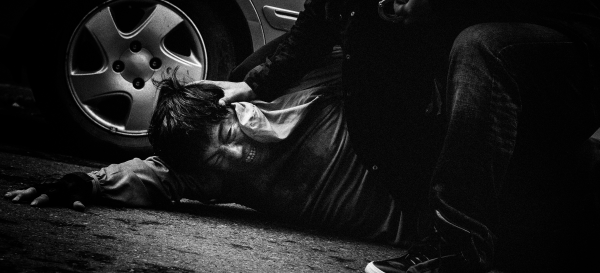
Huang Bo as Lao Jin
Huang Bo has long been recognized as a powerful player, but this cooperation with Cao Baoping allowed him to open up a new self. "After you have been acting for a period of time, you begin to have the 'Three Axes'. The 'Three Axes' are particularly easy to use. They can be used to deal with almost all kinds of roles you encounter. If you give them a try, they will all be correct and there will be no mistakes. Generally speaking, The drama just passed and it slowly became a habit.”
But Huang Bo also admitted that these handy habits began to make him more and more annoying and panicky. "Sometimes you can't find a reason to take on another movie." Meeting a director like Cao Baoping made Huang Bo "force himself and break the previous balance." Huang Bo recalled that during the filming process, he always gave a relatively "normal" acting method when rehearsing the scene for the first time. "Based on our experience, we generally go through it and there won't be too big a gap. We need to establish the scene in the early stage." After that, the director was responsible for cutting off the regular parts, cutting off the parts that we thought were safe, and slowly exposing the roots underneath. After the skin was actually cut, the flesh and blood was exposed, which was what he wanted. ."
Talking about the complexity of character creation this time, Huang Bo recalled, "It is a combination of anger and a little sadness. The happiness after revenge has a trace of sadness, and the sadness has a trace of happiness... We will always perform well, In terms of the script, it’s just about broadening the boundaries a little further to the side, or digging an extra spoonful of depth, and it’s painful and joyful in the process.”
Xu Zheng, who was in the audience, commented after watching the movie that as a director, Cao Baoping is more like an "extreme athlete", "He wants to challenge the limits of drama and actors. The scale of the theme is also challenging, and he is also challenging the limits of human nature." ." Xu Zheng also spoke highly of the actors' performances in the film, saying, "Nowadays, everyone likes to say 'the acting skills are explosive'. I can't stand that. In Zhou Xun, what I see is the kind of restraint, which is more precise and special. Good." At the same time, Xu Zheng teased that Huang Bo was "good-looking" by Cao Baoping in this movie. Although he was made to look miserable, he was "extremely handsome."
Go beyond genre narratives and face the pain of the original family
Just as the film's poster clearly states "audiences under the age of 18 are advised to watch with caution", "Wide the Angry Sea" is indeed a "strong film". It opens with a suspenseful murder case of a young girl in a foreign country. Under the extreme revenge of crime and punishment, blood and tears, the hidden secrets behind the two families of Lao Jin, the "cruel father" played by Huang Bo, and Jing Lan, the "wolf mother" played by Zhou Xun, are revealed. the truth of human nature. The movie not only presents an extremely cruel story of chasing a murderer, but also triggers many social thoughts on the harm to the original family and the gray areas of human nature.
Cao Baoping broke through the original novel and added clues about the original family, which brought a strong shock to the audience. When talking about the adaptation of the entire movie, Cao Baoping said, "The novel provides a good basis for a genre film. A father seeks revenge for his daughter's truth. The plot conforms to the genre and the basic settings of a feature film, and it is a solid foundation. But when I started shooting, I wanted to make the film larger in size and layout, including a lot of visual effects. And it has a very intense chase narrative chain.”
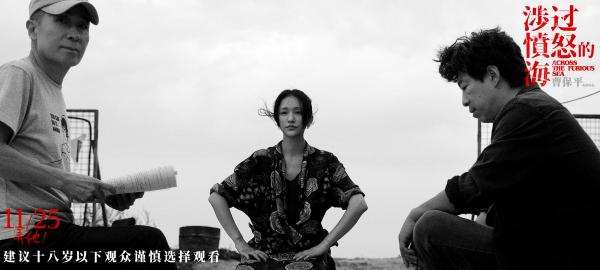
Cao Baoping, Zhou Xun and Huang Bo on the set of "Crossing the Angry Sea"
Cao Baoping, who has always been good at integrating genres and authorial expressions, said that he is very clear about not just making simple genre films. "For me, to make a movie, I must find something to express. If not, this movie will It's just tasteless to me. Regarding my film concept, the expression behind each of my films is greater than anything else."
Actor Qi Xi, who regards this movie as his "annual expectation", expressed his feelings about watching the movie, "After watching the movie, I found that Director Cao Baoping has sharpened such a sharp knife and pierced the softest part of our hearts. In that place, the misunderstanding of parents by children and the misunderstanding of children by parents are very shocking."
In response, Cao Baoping responded, "The surface of the movie is a story about a father's revenge for his daughter, but its parallel theme is a topic about the original family. In the process of pursuit, the father re-examines his relationship with his daughter, and finally discovers the real The source of it is actually oneself." This film has the same theme expression as Cao Baoping's previous film "Dog Thirteen". Cao Baoping talked about his observations and thoughts on related issues: "There are many Chinese parents who think they love their children, but in our cultural environment, many forms and shapes of harm appear in the name of love. This harm It may affect a person's life. But when it comes to harm, we often choose to avoid it."
Throughout the movie, everyone carries their own shackles. In the birth of tragedy, everyone is bound by themselves, and no one is innocent. Such a depressing and dark narrative tone enveloped the entire film from beginning to end, and the director did not give an emotional outlet until the end. This choice is exactly Cao Baoping's attitude towards making movies: "I don't think avoidance is a good idea at all. We need to face it." Cao Baoping said, "There are too many movies that let everyone see warmth, joy, and happiness." , the sunny side. But there are few movies that allow you to see the darkness of human nature and the complexity of the world. But only by realizing these darkness and complexity can you face the world better."


